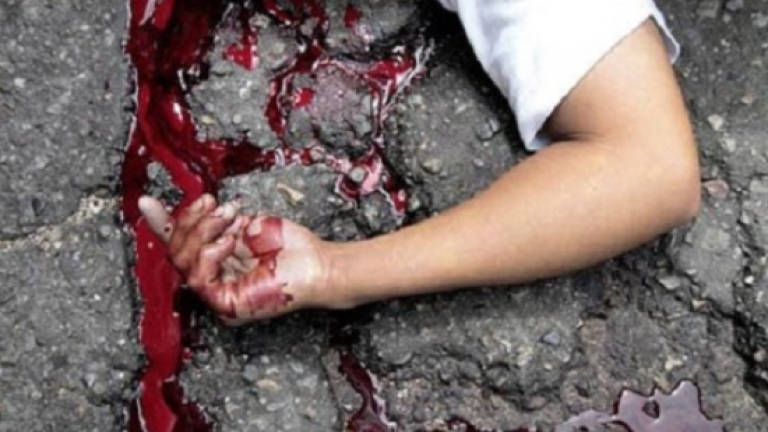Armed group executes 32 people in C. Africa: HRW

BANGUI, Central African Republic: An armed group executed at least 32 civilians and captured fighters in the lawless heart of Central African Republic in December, Human Rights Watch said Thursday.
"In the town of Bakala, rebels from the Union for Peace in the Central African Republic (UPC) on Dec 12, executed 25 people after calling them to a school for an alleged meeting," the global watchdog body reported.
"Earlier that day, UPC fighters executed seven men who were returning from a nearby gold mine. Accounts of the incidents were provided by a survivor and eight witnesses, including five men who were forced to help dispose of the bodies," the statement added.
HRW Africa researcher Lewis Mudge denounced the slaughter as "brazen war crimes by UPC fighters who feel free to kill at will."
Bakala lies in the central Ouaka province, where clashes are frequent between rival factions of the ex-Seleka, a mainly Muslim rebel coalition that seized power in March 2013, to be officially disbanded six months later.
Atrocities by Seleka forces led to the rise of armed anti-balaka ("anti-machete") militias largely drawn from the deeply poor nation's Christian minority. Thousands of people were killed and hundreds of thousands fled their homes in a conflict whose main victims were civilians.
The UPC is a splinter group from a rebel force in neighbouring Chad, created in September 2014 and commanded by Ali Darassa Mahamat, who had joined the Seleka and watches over strategic, lucrative trade routes, according to HRW.
On Jan 23, Darassa denied that his group killed civilians in the Bakala region. "Soldiers in the UPC cannot execute civilians or prisoners," he told HRW. "What you have heard about the UPC are lies."
'Armed groups reign'
Military intervention in the CAR by France and a UN force, Minusca, has brought an end to large-scale massacres, restored relative calm to the capital Bangui and enabled the election of President Faustin-Archange Toudera, who took office in March 2016.
But tracts of the country remain under the sway of armed movements that maintain general insecurity. Depending on their interests — control of gold and other mines, cattle rustling and highway robbery — these groups form shifting alliances, which can even see ex-Seleka forces linking up with anti-balaka fighters.
The independent expert of the United Nations on human rights in the CAR, Marie-Therese Keita-Bocoum, early in February said that "armed groups reign as masters over more than 60 percent of the territory, benefiting from total impunity.
"They have taken the place of the judicial apparatus and terrify the population."
Touadera on Wednesday appointed the chief prosecutor to a Special Criminal Court for the CAR founded in 2015, Minusca announced in a statement. Once operational, the purpose of the court will be to bring to justice those accused of the many crimes against humanity carried out since 2003.
Welcoming the move as "an important step towards accountability", HRW said "the court should now be further staffed without delay, so it can begin investigations and prosecutions." — AFP